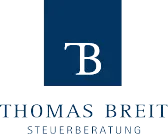Are you aware of the threat of a so-called hidden profit distribution? Or to put it differently: Have you ever received funds or benefits from your GmbH that a third party would not have received?
If you have answered the second question with yes, you might have already committed a criminal offence.
Unplanned benefits, such as a hidden profit distribution, are in fact prohibited by law and will be penalized by the tax office.
It is therefore of paramount importance for companies as well as their owners to prevent such transactions from happening.
For this reason, I will explain in this post:
- What constitutes a hidden profit distribution
- What the 6 cases are that occur most frequently in practice
- What legal penalties you may face
- How minority shareholders are harmed by a hidden profit distribution
- 3 ways of how to prevent a hidden profit distribution
This article was updated on 28 July 2021.
What constitutes a hidden profit distribution?
The hidden profit distribution (verdeckte Gewinnausschüttung) is laid down in the Corporate Income Tax Act (KStG) and concerns extraordinary distributions of the company profit, to the benefit of the company’s shareholders.
In summary: If a shareholder receives benefits at the expense of the company (e.g. excessive rent or salary payments) that a third party would not receive (see section 8 (3) Corporate Income Tax Act (KStG)), this constitutes a hidden profit distribution.
In general, the responsibility for a hidden profit distribution lies with the managing director. Specifically, at least one of the following 3 criteria must be met:
- The company is prevented from building up assets.
- The company’s assets are unlawfully diminished.
- The payment or benefits are not based on a written agreement that has been concluded beforehand.
Admittedly, this definition might sound rather abstract to you. Let me therefore explain these rules with a few examples taken from everyday practice that make them easier to understand.
Hidden profit distribution: 6 common cases, simply explained
Most hidden profit distributions are not carried out intentionally. Many entrepreneurs are simply unaware that certain agreements are unlawful.
To help you avoid this, I have summarized below the six most common mistakes:
1. You are selling an asset to your company at an inflated price
Please note: If you transfer one of your assets to your GmbH, the price must correspond to the approximate market value.
Otherwise, the legislator will assume that you have enriched yourself at the expense of your GmbH.
My advice: If you have obtained an expert opinion on the price for such transactions, you are always on the safe side.
2. You are renting out a building or a warehouse to your GmbH and the rent is higher than the market price
Be very careful when you rent out an office to your company: as in the above-mentioned sale, this must also be governed by the arm’s length principle.
The rent must be in line with the market.
3. You are paying your private expenses from the bank account of the GmbH and do not reimburse the money
Quickly pay for your grocery shopping with your company card instead of your own bank card? Not a good idea!
To be on the safe side, you should always pay for all personal expenses from your personal bank account.
While this may entail a bit more work at times, it will save you a lot of discussions with the tax office.
4. You are paying yourself a high annual salary at the end of the year
You set yourself a low salary for the time being at the beginning of the financial year, because you do not know yet how the financial year will pan out? You believe that in case of an above-average year you are still able to adjust the salary afterwards anyway?
I must absolutely advise against this. Set a realistic salary right from the start. After all, a subsequent readjustment can very quickly become a hidden profit distribution.
5. You are using your company car privately without having concluded a prior agreement
If you want to use your company car privately, you must always conclude an agreement. At the end of the day, the private use of a company car is a so-called benefit in kind and therefore subject to taxation.
If you use the company car for private journeys without any agreement in place, you are guilty of a hidden profit distribution.
6. You grant a loan to your GmbH that is not in line with market conditions
Again, the same principle applies here as with the sale or rental: If you as a shareholder of your company grant a loan to your company, the interest rate must not significantly deviate in either direction from the average market rate.
Always bear in mind: How much interest would be earned or paid by a third party?
What legal penalties do you face in case of a hidden profit distribution?
A hidden profit distribution can have the following consequences for you as (majority) shareholder or managing director as well as your GmbH:
- Any unlawful business expenses (excessive rent, excessive salary, etc.) must be reversed. This will increase your company’s profit level. Hence, your company will have to pay back taxes for trade and corporate income taxes.
- The hidden profit distribution becomes an open distribution of profits. In other words: The money you received unlawfully from your company must be back-taxed at your personal income tax rate.
The worst case scenario: Legal proceedings because of attempted tax evasion
In addition to substantial back taxes, in serious cases the tax office may even file charges against you. The allegation: attempted tax evasion.
In the case of tax evasion (whether intentional or not), you as a managing director may face a prison sentence of up to 10 years. The reason behind this is the so-called GmbH managing director liability.
Within the scope of this liability, you as the managing director can be held personally responsible for misconduct such as tax evasion or understatement of tax.
This is how minority shareholders are harmed by a hidden profit distribution
While the managing director, or majority shareholder, is directly liable to prosecution, a hidden profit distribution has other economic consequences for minority shareholders.
In the event of a hidden profit distribution by the majority shareholder, the profit of the GmbH to be distributed is reduced. This also means that the profit share of a minority shareholder is reduced.
This means: As the majority shareholder has unlawfully enriched him- or herself, the minority shareholder’s share of profit has decreased.
However, if a hidden profit distribution is discovered, the minority shareholder can claim for damages.
If you are a minority shareholder and faced with such a case, you should always consult your lawyer on how to proceed further. As a tax consultant, I cannot provide you with legal advice on this.
The catch when it comes to claiming damages: It is not always possible to prove beyond doubt that this was a hidden profit distribution. If it cannot be proven beyond reasonable doubt that the majority shareholder has acted improperly, you will not receive any compensation.
It is therefore also important for you as a minority shareholder that you take precautions to prevent a hidden profit distribution from occurring in the first place. I will explain later in this blog post how to do this.
How can you prevent a hidden profit distribution from happening?
As an honorable managing director of your company, it goes without saying that you want to prevent expensive back payments or even a prison sentence.
The problem: Despite your newly acquired knowledge, without additional safeguards, the risk of unknowingly carrying out an unlawful hidden profit distribution remains high.
In order to make sure you do not step into this trap, I will introduce you to three proven ways that will greatly reduce your risk of carrying out a hidden profit distribution.
First way: The arm’s length principle
The arm’s length principle is a guideline with which to assess tax circumstances.
The term already states what is behind an arm’s length transaction: If you are carrying out a transaction with your company, the conditions must compare to those that would be awarded to a third party.
Let me remind you again of a similar example we discussed above: You are renting out a warehouse to your company and receive € 1,000 a month in rent. Would a third party who wants to rent a warehouse of the same size pay you the same amount?
If a third party would pay € 600 at the most, the transaction with your company does not comply with the arm’s length principle. To avoid a hidden profit distribution, you must adjust the rental agreement.
Second way: Compliance with formal requirements
Keeping track of formal requirements also helps prevent a hidden profit distribution. This means for you as the managing director:
- Put down all agreements in writing
- Only make a transaction when a transparent, verifiable agreement is in place
- Formulate all content as clearly as possible
Third way: The Tax CMS
As a tax consultant, I recommend that every company uses an effective control system, such as a Tax CMS.
This system captures all processes within your company, which will substantiate your honorable intentions.
In the event of irregularities, the tax office can no longer assume a hidden profit distribution or an attempted tax evasion this way.
In another one of my blog posts, I have described in more detail what a Tax CMS is exactly and what advantages it creates for you as an entrepreneur.
Conclusion: Be very careful when it comes to transactions with your GmbH…
Your alarm bells should start ringing every time you conclude an agreement with your company or pay out any of its funds to yourself. This is exactly the situation in which many entrepreneurs slide (without knowing it) into a hidden profit distribution.
Even if the hidden profit distribution is carried out unintentionally, you are at risk of high back tax payments of several thousand euros.
On a positive note: Using simple means such as the arm’s length principle or the internal Tax CMS, you as the managing director of the company are able to prevent unlawful profit distributions.
If you would like to know how the three ways presented in the post are best implemented, or how else to protect yourself from a hidden profit distribution, please feel free to contact me.
You can reach me by telephone (+49 40 44 33 11), e-mail (anfrage@steuerberatung-breit.de) or via my contact form (click here).
Kind regards,
Thomas Breit
Photo: © Elnur – stock.adobe.com




